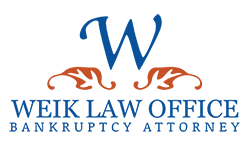GET HELP TODAY
Bankruptcy procedures are controlled by complex federal laws and regulations including bankruptcy exemptions. These are laws that allow debtors to protect certain properties from creditors. In Chapter 13 bankruptcy in Raleigh, exemptions help determine the amount the debtor must pay to his unsecured creditors through a 3-5 year repayment plan.
Under this chapter, an exemption limit applies to any equity in the debtor’s property. Equity is the difference between the value of the property and the amount owed. If a piece of property is covered by a loan, its equity would be included in the exemptions. This will allow the debtor to propose a repayment plan to make installments and keep his property.

North Carolina Exemptions
Below are the different North Carolina bankruptcy exemptions, as detailed in the North Carolina Bankruptcy Law:
- Homestead: Real or personal property used as residence up to $35,000 ($6,000 if 65 or older, and the spouse is deceased); up to $5,000 of unused homestead can be applied to property
- Insurance: Employee group life policy or proceeds, fraternal benefit society benefits.
- Pensions: Legislators, municipal and county employees, firefighters and rescue squad workers, teachers and state employees, and law enforcement officers.
- Personal Property: Animals, crops, books, clothing, appliances, household goods and furnishings up to $5,500 total; add up to $1,000 per dependent, and up to $4,000 total additional person.
- Public Benefits: Special adult assistance, crime victims compensation, unemployment compensation, and worker’s compensation.
- Wages: Earned but unpaid wages received 60 days prior to filing for bankruptcy.
- Wild Card: $5,000 less any amount that the debtor has claimed for homestead or burial exemption, or $500 for any property.
Supplementary Federal Exemptions
In addition to the state exemptions that the debtor may apply for bankruptcy in Raleigh, NC, several federal law exemptions may also apply to certain conditions. All exemptions are listed in the Law Section of the United States Code:
- Retirement Benefits – CIA employees, civil service employees, foreign service employees, military honor roll pensions, military service employees, railroad workers, Social Security, veterans’ benefits.
- Survivor’s Benefits – US court directors, judges, judicial center directors, lighthouse workers, supreme court chief justice administrators.
- Death and Disability Benefits – Longshoremen and harbor workers, government employees, war risk hazard death or injury compensation.
- Miscellaneous – Klamath Indian tribe benefits for Indians with residence in Oregon, military deposits in savings accounts while on permanent duty out of the continental US, military group life insurance, railroad workers’ unemployment insurance, seamen’s clothing, seamen’s wages (while at sea) pursuant to a written contract, 75% of earned but unpaid wages.
Consult with a Bankruptcy Lawyer in Raleigh, NC Today
Filing for bankruptcy does not mean letting go of all your properties. If you are unsure what your options are regarding your financial situation, Weik Law Office will be glad to assist you. With over 15,000 bankruptcy cases filed, our office can help you regain control of your future.
Call Weik Law Office at 919-845-7877, and get a free consultation for your options for bankruptcy and debt relief.
